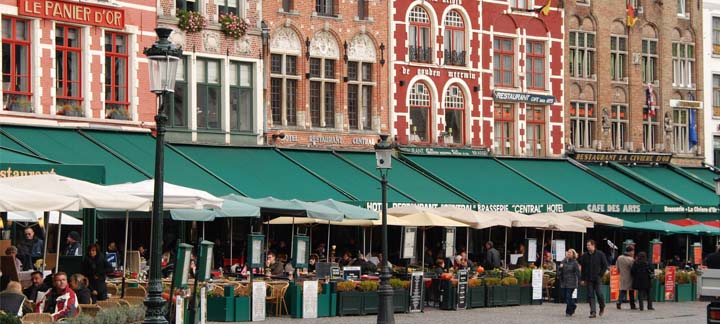

Belgium’s relatively small wine production and strong economy, coupled with the population’s affinity for a large variety of wines places the country among the more promising markets in Europe concerning wine imports. The presence of established Belgian wine importers and a consistent rise in consumption suggest a positive trajectory for the Belgian wine market in the coming years.
Belgium’s rather cold climate forces the country in the position on relying heavily on wine imports, as its internal production is limited to small quantities, in select regions. Still, things are changing fast, as in the last 10 years internal production increased 5 fold.
Belgium’s wine consumers are accustomed to quality wines, making them connoisseurs in this field. This means that wine exporters looking to enter the Belgian market should focus on premium wines first, making sure that they offer a quality product that is also supported by a strong marketing strategy.
Consumers want to hear a unique selling point, a story about the wine’s special origin and production. Sparkling wines and white wines are still very popular, and consumers usually also pay attention to prices, looking for the best price-quality ratio.
Another trend fueled by healthy diets is the selection of fresh, light wines that don’t feature strong tannins, making them a good match for a wide range of meals.
Recovery in 2024
Total wine imports in Belgium reached $1.279 billion in 2023, a small decrease compared to the previous year. The preference of the Belgian wine importers changed little in the last years, with the majority of imports coming from France ($643 million), Italy ($213 million) and Spain ($102 million). Other major import markets are Germany, Portugal, South Africa, the United States, Chile and Australia. Just close to the top 10, in the 11th place, is Hungary, a growing exporter in the EU.
After a drop in imports in 2023, the summer of 2024 saw a significant rise in wine imports, of 45% year-over-year. This significant increase underscores the rising demand for a diverse range of wines in Belgium, which, similar to the Netherlands, serves both as a consumer market and a hub for wine re-exports.
Focus on wine importers
Belgium is among the top 15 global wine consumers, underscoring its significance in the international wine market. Over the past decade, wine import prices have shown a consistent upward trend, indicating a shift towards higher-quality or more premium wine selections, a trend which is also clear in other EU countries, especially the Nordic ones.
Exporters should focus on the Belgian wine importers first, rather than on the larger supermarkets and retailers, as the risks are smaller. Wineries with a small production of superior wine can find quite a large number of exclusive importers who are interested in unique wines.
Belgium’s neighbors, like France and other S European countries like Portugal or Spain, dominate the market, while less known regions – Georgia for example, face problems entering the market due to the reluctance of the local consumers. Still, in the last years wines from the New World are gaining traction, being close to 10% market share. The companies who are successful focus on the unique character on their wine, their origin,n and their production process.
3 Wine Importers from Belgium
Les Belgiens
Address: 64 Au Pairon
Limbourg, Région Wallonne, Liège, 4831
Phone: +32 87 89 02 84
Website: https://www.lesbelgiens.be/
Enolia
Address: 180 Chaussée de Huy
Chaumont-Gistoux, Région Wallonne, Brabant Wallon, 1325
Phone: +32 10 40 01 99
Website: https://enolia.be/fr/
Vinotalia
Address: 8A De Bergen
Zoersel, Vlaams Gewest, Antwerpen, 2980
Phone: +32 493 05 57 93
Website: https://vinotalia.be/
Producers interested in contacting top Belgian wine importers can find a database including distributors and retailers here.





